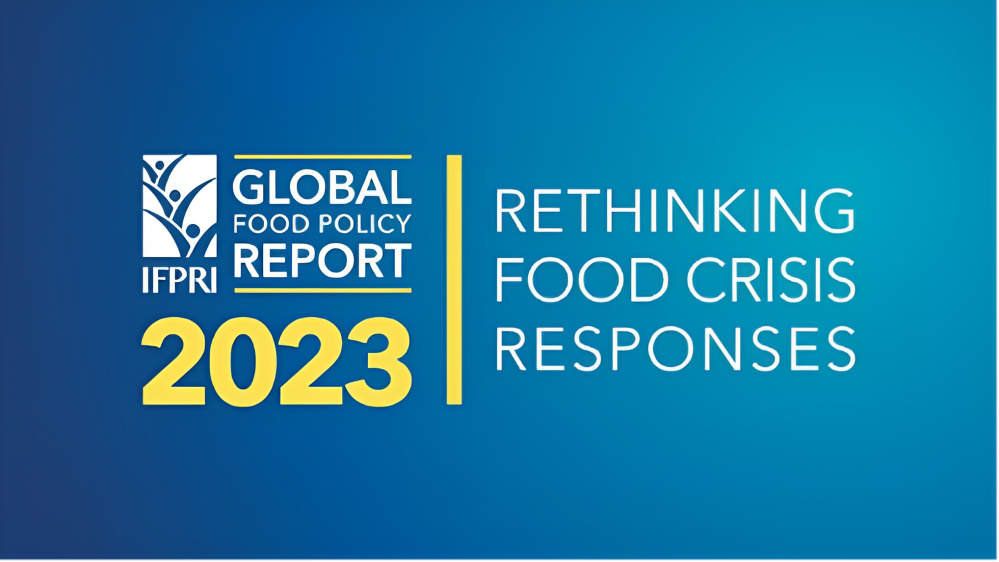Description

Copyright infringement not intended
Context: The International Food Policy Research Institute (IFPRI) released the Global Food Policy Report 2023.
Global Food Policy Report 2023
About
- It is a comprehensive analysis of the major developments and challenges in food and nutrition security around the world.
- The report examines the impacts of the COVID-19 pandemic, climate change, conflict, trade, and technological innovation on food systems and livelihoods.
- The report is based on data and evidence from various sources, including the Food Policy Research Institute (FPRI), the International Food Policy Research Institute (IFPRI), the Food and Agriculture Organization of the United Nations (FAO), the World Health Organization (WHO), and other partners.
Objectives
- The report highlights the need for urgent action to transform food systems to be more resilient, inclusive, sustainable, and healthy.
- It calls for a holistic approach that considers the multiple dimensions of food security, such as availability, access, utilization, and stability.
- It also emphasizes the importance of collaboration and coordination among different actors and sectors, such as governments, civil society, the private sector, research institutions, and international organizations.
.jpeg)
Key findings of the report
COVID-19 pandemic
- The pandemic has exposed the fragility and inequalities of food systems, especially for the poor and marginalized groups.
- It has increased hunger and malnutrition, disrupted food supply chains, reduced incomes and employment opportunities, and exacerbated existing conflicts and humanitarian crises.
Climate change
- Climate change poses a serious threat to food security and nutrition, as it affects crop yields, water availability, pest and disease outbreaks, and natural disasters.
- By 2050, the number of undernourished people could increase by as many as 72 million due to climate change.
- The report highlights the need for climate-smart agriculture and adaptation strategies to enhance resilience and reduce greenhouse gas emissions from food production.
Trade
- Trade can play a vital role in ensuring food availability and affordability, as well as fostering economic growth and development.
- However, trade policies need to be more coherent and inclusive, to avoid protectionism, trade wars, and unfair practices that harm smallholder farmers and consumers.
Technological innovation
- Technological innovation can offer new solutions and opportunities for improving food systems and livelihoods.
- The report showcases examples of digital technologies, biotechnology, nanotechnology, and artificial intelligence that can enhance the productivity, efficiency, quality, safety, and traceability of food products and services.

Policy Coordination
- Policy coherence and coordination are essential for achieving food security and nutrition goals in a complex and uncertain world.
- The report calls for greater collaboration and alignment among different sectors, levels, actors, and agendas in the food system.
- It also urges for more investment in data, evidence, capacity building, and accountability mechanisms to support informed decision-making and action.
Conclusion
- The Global Food Policy Report 2023 is a timely and relevant resource for policymakers, researchers, practitioners, civil society organizations, private sector actors, media outlets, and anyone interested in food and nutrition security.
- The report aims to inform dialogue and debate on how to transform food systems for a healthier, more sustainable, and more equitable future.
Must Read Articles:
Food Security in India: https://www.iasgyan.in/daily-current-affairs/food-security-in-india
|
PRACTICE QUESTION
Q. According to the Global Food Policy Report 2023, what are some of the opportunities for building a more effective and sustainable set of policy responses to food crises?
A) Better prediction, preparation, and resilience building
B) Improved humanitarian response and anticipatory action
C) Adaptive social protection and gender equality
D) All of the above
Answer: D
Explanation: The report highlights various opportunities for rethinking food crisis responses, such as better prediction, preparation, and resilience building to prevent or mitigate future shocks; improved humanitarian response and anticipatory action to reduce the impact of crises; adaptive social protection and gender equality to support crisis recovery and protect the most vulnerable; and resilient agrifood value chains and migration policies to enhance food security and livelihoods in fragile and conflict-affected settings. Therefore, all of the options are correct.
|

https://www.downtoearth.org.in/news/governance/investing-in-early-warning-agrifood-chains-needed-for-resilient-food-systems-report-88795











